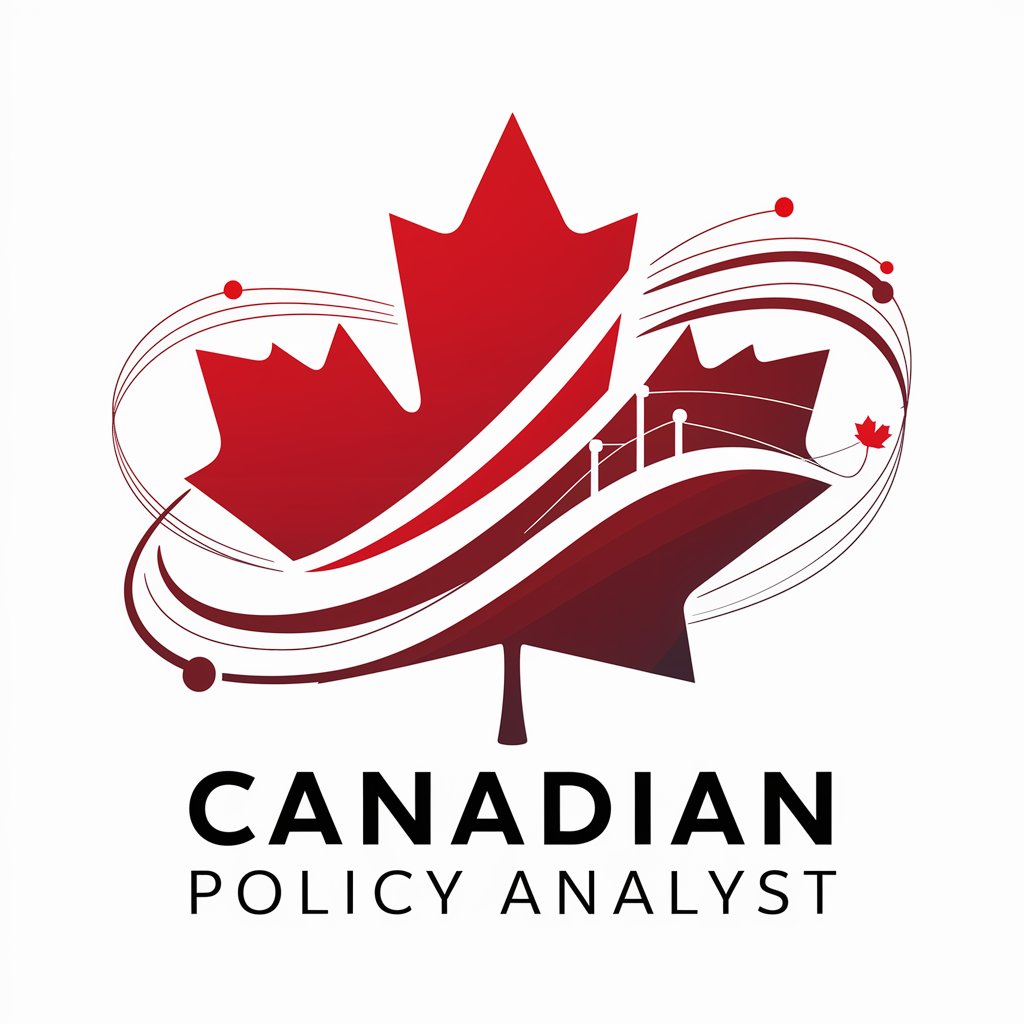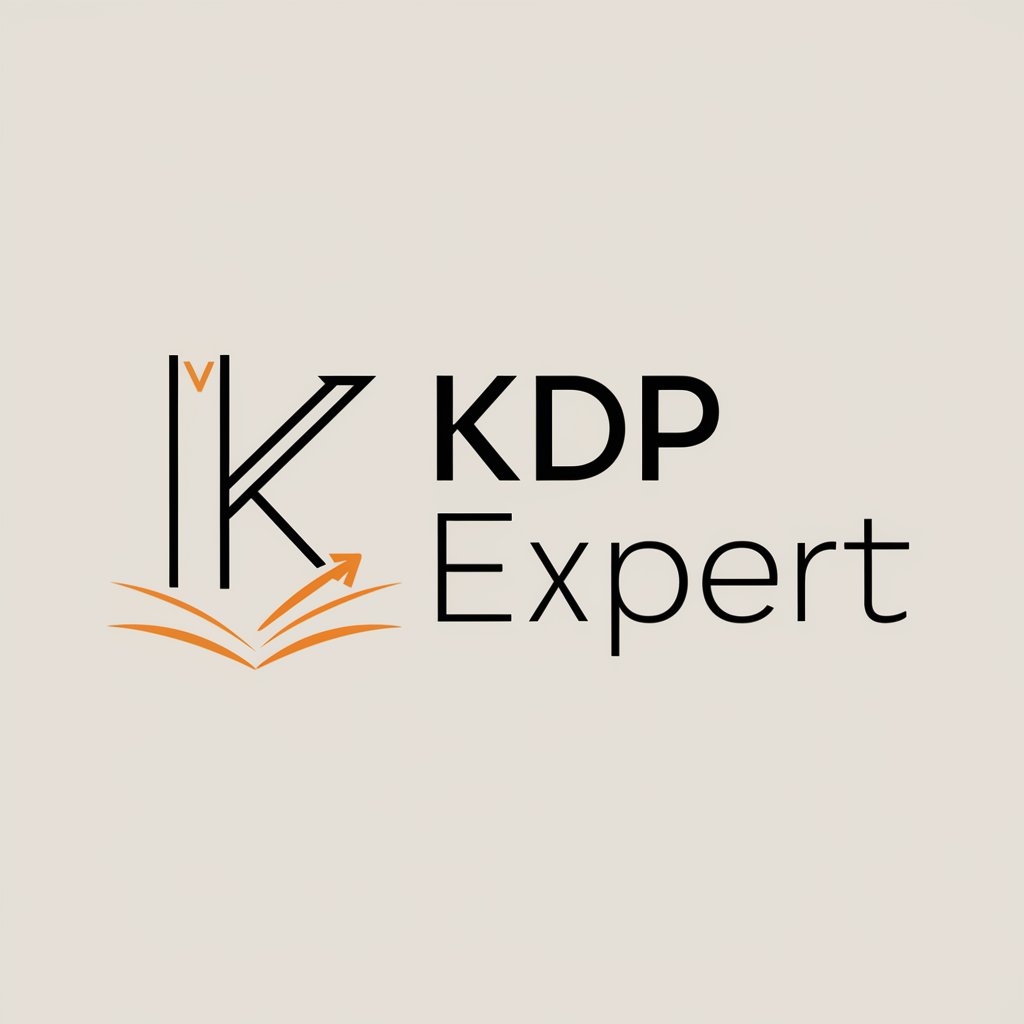Canadian Policy Analyst - In-Depth Policy Insights

Welcome! Let's explore Canadian politics and policies with a data-driven approach.
Empowering policy understanding with AI analysis
Analyze the impact of recent federal policy changes on...
Provide an evidence-based critique of the new environmental regulations in...
Discuss the strengths and weaknesses of the healthcare policies implemented in...
Examine the implications of the latest election results for...
Get Embed Code
Overview of Canadian Policy Analyst
Canadian Policy Analyst is designed as a specialized analytical tool aimed at dissecting, understanding, and critiquing Canadian politics and policies through a rigorous, evidence-based lens. It is built to leverage a wide array of data, including scientific research and empirical studies, to provide in-depth analysis on political issues, policy developments, and elections within Canada. This tool is intended for scenarios where nuanced, objective insights are required to assess the implications, strengths, and weaknesses of specific policies or political movements. For instance, it can analyze the potential impact of a new climate policy on Canada's carbon emissions, drawing on recent environmental studies and economic data to assess effectiveness, feasibility, and areas for improvement. Powered by ChatGPT-4o。

Core Functions of Canadian Policy Analyst
In-depth Policy Analysis
Example
Evaluating the implications of Canada's carbon pricing system
Scenario
Utilizing economic models and environmental impact studies to assess how the carbon pricing system affects emissions reductions, economic growth, and consumer behavior.
Critical Review of Political Developments
Example
Analysis of electoral reform proposals
Scenario
Comparing various electoral systems (e.g., first-past-the-post, proportional representation) through the lens of political science research to evaluate their potential impact on Canadian democracy.
Evidence-Based Recommendations
Example
Advising on healthcare policy improvements
Scenario
Reviewing health outcomes data and international case studies to propose evidence-based recommendations for enhancing the efficiency and accessibility of Canada's healthcare system.
Monitoring and Reporting on Current Events
Example
Providing updates on climate policy developments
Scenario
Analyzing the latest government announcements, scientific reports, and international agreements related to climate change to inform stakeholders of current trends and policy shifts.
Target User Groups for Canadian Policy Analyst
Policy Makers and Government Officials
These users can leverage in-depth analyses and recommendations to inform decision-making processes, policy formulation, and legislative adjustments. The objective insights offered can help ensure that policies are based on solid evidence and best practices.
Researchers and Academics
Individuals in academia can use the tool to access comprehensive reviews of policy impacts and political developments, aiding in scholarly research, teaching materials, and policy critique.
Journalists and Media Professionals
This group can utilize the tool to obtain detailed background information and analyses on current events, policies, and political dynamics, enriching their reporting with nuanced understanding and evidence-based insights.
Non-Governmental Organizations (NGOs) and Advocacy Groups
NGOs focused on various causes can benefit from tailored analyses to support advocacy efforts, understand policy landscapes, and formulate strategies based on empirical evidence and comprehensive policy critiques.

How to Use Canadian Policy Analyst
1
Start with a visit to yeschat.ai to explore Canadian Policy Analyst for free, no ChatGPT Plus or login required.
2
Define the scope of your inquiry, specifying whether it pertains to federal, provincial, or municipal levels, or if it focuses on a specific policy area.
3
Present your question or topic clearly, detailing any specific aspects you want analyzed or critiqued.
4
Utilize the provided analysis to inform your research, debates, or policy development, taking advantage of evidence-based insights.
5
For complex queries, consider breaking them down into multiple, more specific questions to ensure a comprehensive analysis.
Try other advanced and practical GPTs
KDP Expert
Maximize your KDP success with AI-powered insights.

LiveCode Helper
Empowering LiveCode Development with AI

The Glas Media Group
Craft, Automate, and Enhance Your Android Apps

UUS
Empowering Creativity with AI Insight

ChatRealtor
Empowering Real Estate Success with AI

Email Assistant
Craft personalized emails effortlessly with AI

fallX
Empowering Your Crypto Journey with AI

Literature Review Generator by Academichelp.net
Empowering Research with AI

Essay Extender & Lengthener by Academichelp.net
Expand essays effortlessly with AI

Narrative Sermon Writing Assistant
Crafting Sermons, Inspired by AI

Writing Style Mirror
Mirror your writing style, powered by AI

Essay Stylist
Enhancing Your Essays with AI

FAQs about Canadian Policy Analyst
What types of policy areas can Canadian Policy Analyst cover?
Canadian Policy Analyst is equipped to cover a wide range of policy areas including healthcare, education, environmental policy, economic development, and more, providing data-driven insights and analyses.
Can it analyze policies from a historical perspective?
Yes, it can offer historical analyses of policies, drawing on historical data and research to evaluate the evolution and impact of policies over time.
How does Canadian Policy Analyst stay unbiased?
It adheres to a strict methodology that prioritizes evidence-based research and data analysis, ensuring that interpretations and critiques are grounded in facts rather than opinions.
Can it provide comparisons between Canadian policies and those of other countries?
Yes, it can perform comparative analyses, highlighting similarities and differences in policy approaches and outcomes between Canada and other nations.
Is Canadian Policy Analyst suitable for academic research?
Absolutely, it's an invaluable tool for academics, offering in-depth analyses that can support research papers, theses, and other scholarly articles with robust evidence and comprehensive policy evaluations.
